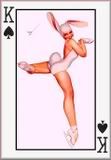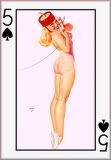Sweden’s Riksbank said it had slashed the proportion of dollars in its reserves from 37 to 20 per cent, pushing its euro holdings up to 50 per cent.
Dollar in rough water and needing support
By Steve Johnson
Published: April 21 2006 12:28 | Last updated: April 21 2006 18:02
The US dollar suffered a terrible week, hitting a seven-month low against the euro, as the market wondered what would support the currency when monetary tightening had run its course.The dollar was first hit by the release of the minutes of the Federal Open Market Committee’s March meeting, which said that “most members thought that the end of the tightening process was likely to be near”.
The minutes, alongside soft economic data, prompted a growing number of commentators to opine that the Fed would call it a day after one last quarter-point interest rate rise in May, which would take Fed funds to 5 per cent.
Slightly firmer than expected US consumer inflation data on Wednesday did threaten to throw the dollar a lifeline by suggesting that US rates may need to rise above 5 per cent after all.
However, strategists’ minds were already turning to what might drive the market once US yield support dissipates. According to most, the future looks ugly for the greenback with the huge US current account deficit seen casting its shadow once more.
The International Monetary Fund chipped in, helpfully pointing out that the dollar will need to depreciate “significantly” if global economic imbalances are to be resolved in an orderly fashion. Then on Friday it was the turn of politicians and central bankers to highlight another potential threat to the dollar – that of reserve diversification.
Sweden’s Riksbank said it had slashed the proportion of dollars in its reserves from 37 to 20 per cent, pushing its euro holdings up to 50 per cent.
Alexei Kudrin, the Russian finance minister, said at the G7 summit in Washington that the dollar was not the “absolute” reserve currency and that the US external deficit could affect the dollar’s reserve status in the future.
The dollar fell 1.8 per cent over the week to $1.2339 to the euro, 1.7 per cent to $1.7821 against sterling and 1.4 per cent to Y116.93 against the yen.
The yen hit an all-time low of Y145.49 to the euro on Thursday amid signs that Japanese investors were once again buying foreign bonds now that the fiscal year-end was behind them.
the dollar was not the “absolute” reserve currency
By Steve Johnson
Published: April 21 2006 12:28 | Last updated: April 21 2006 18:02
The US dollar suffered a terrible week, hitting a seven-month low against the euro, as the market wondered what would support the currency when monetary tightening had run its course.The dollar was first hit by the release of the minutes of the Federal Open Market Committee’s March meeting, which said that “most members thought that the end of the tightening process was likely to be near”.
The minutes, alongside soft economic data, prompted a growing number of commentators to opine that the Fed would call it a day after one last quarter-point interest rate rise in May, which would take Fed funds to 5 per cent.
Slightly firmer than expected US consumer inflation data on Wednesday did threaten to throw the dollar a lifeline by suggesting that US rates may need to rise above 5 per cent after all.
However, strategists’ minds were already turning to what might drive the market once US yield support dissipates. According to most, the future looks ugly for the greenback with the huge US current account deficit seen casting its shadow once more.
The International Monetary Fund chipped in, helpfully pointing out that the dollar will need to depreciate “significantly” if global economic imbalances are to be resolved in an orderly fashion. Then on Friday it was the turn of politicians and central bankers to highlight another potential threat to the dollar – that of reserve diversification.
Sweden’s Riksbank said it had slashed the proportion of dollars in its reserves from 37 to 20 per cent, pushing its euro holdings up to 50 per cent.
Alexei Kudrin, the Russian finance minister, said at the G7 summit in Washington that the dollar was not the “absolute” reserve currency and that the US external deficit could affect the dollar’s reserve status in the future.
The dollar fell 1.8 per cent over the week to $1.2339 to the euro, 1.7 per cent to $1.7821 against sterling and 1.4 per cent to Y116.93 against the yen.
The yen hit an all-time low of Y145.49 to the euro on Thursday amid signs that Japanese investors were once again buying foreign bonds now that the fiscal year-end was behind them.
the dollar was not the “absolute” reserve currency



